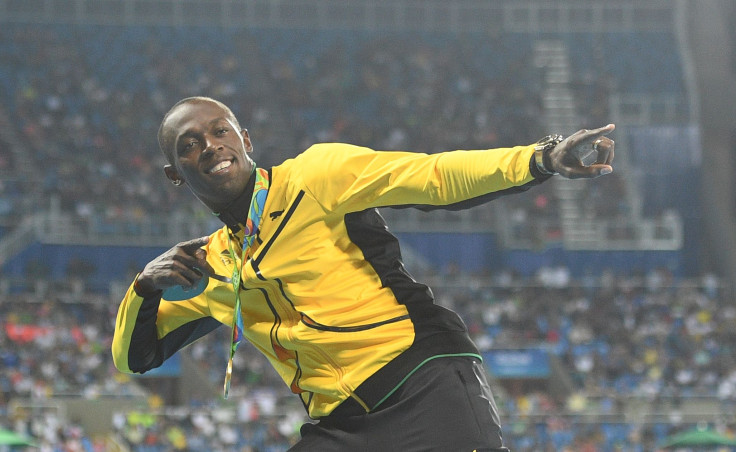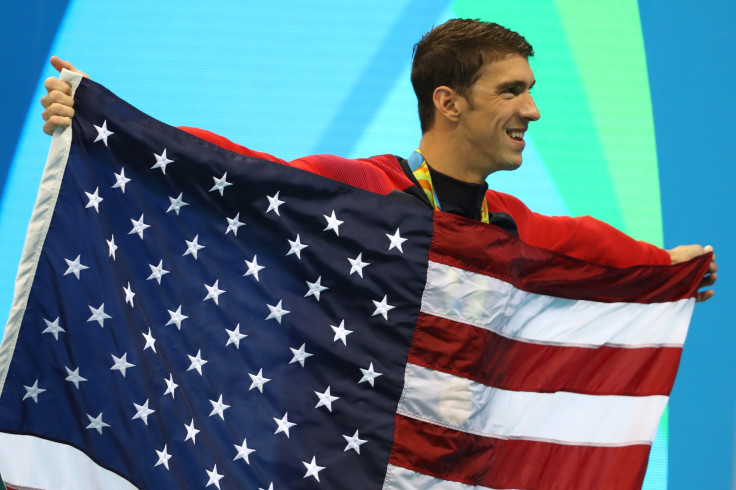Usain Bolt vs. Michael Phelps: Who’s The Greatest Olympian Of All Time?

There may have been plenty of concerns and controversies approaching the Rio Olympics, but the competition itself has already delivered indelible moments from two men who have enshrined their legacies among the greatest Olympians of all time.
In the pool, Michael Phelps, already in possession of the most medals and the most gold medals of anyone in Olympic history, has further enhanced his legacy with five gold medals and one silver. As Phelps’ Games drew to a close, Usain Bolt took the spotlight on the track. With victory in the showpiece event of the Olympics, the 100 meters, he became the first man to be crowned the fastest man on the planet at three separate Games. Already with seven gold medals to his name, he is a strong favorite to make it nine before the extinguishing of the flame in Rio when going in the 200m and 4x100m relay.
It is rare indeed to have two greats of land and water competing at the same time. Both, too, look like making Rio their glorious Olympic swansong. Even before arriving in Rio, neither had anything left to prove. Phelps’ place as the greatest swimmer in history was cemented, as was Bolt’s as the most dominant sprinter. And, at the age of 31 and 29, respectively, both are set to call it a day, even if there is a definite sense that they could continue to reign supreme for a while yet.
While competing in very different realms, given how their careers have crossed over, it is inevitable that the two will be compared in an ongoing debate over the greatest Olympian of all time.
In terms of pure numbers, there is no debate. Phelps’ haul of 28 medals is 10 clear of the next best, former Soviet gymnast Larisa Latynina, and his gold medal tally of 23 is 14 more than those joint second on the list, a group that Bolt can join over the next four days.
But it is not as simple as that. Phelps has benefited from swimming having four different strokes to cover the same distances as well as the medley which combines all four. On the track, Bolt only has one way to get from start to finish, although you wouldn’t put it past the Jamaican to triumph in a 100m hop.
Phelps has won medals in freestyle, butterfly, medley and three different relays. Bolt, meanwhile, has competed only in three events at each Games, the 100m, 200m and 4x100m relay. Yet he was a 400m runner in his youth and, not for the first time, after winning the 100m made clear his belief that, if he committed to it, he could dominate over one lap of the track as well.
“If was running the 400… If it was up to my coach I’d be running the 400m right now,” he said. “I’ve always bobbed and weaved to try and find ways not to run it. He always said I could break the 400m world record because I have [the talent] it was always a possibility, if I did the 400m.”
Scheduling, however, makes that impossible. The 400m final, in which South Africa’s Wayde van Niekerk smashed Michael Johnson’s long-standing world record, took place immediately before the 100m on Sunday night.
Adding to Bolt’s cause is the fact that he has never lost an Olympic event. Phelps, meanwhile, even discounting his first Olympics in 2000, when aged just 15, has failed to take gold in six events.
Of course, while Phelps’ medal tally benefits from having more races to compete in, he still has to master many more disciplines and then actually go out and race all of them. Often that means competing in multiple races in the same session. In Rio, for example, the Maryland-native won two golds on the same night and last Thursday had to get through a semifinal of the 100m butterfly only 30 minutes after winning gold in the 200m individual medley.

Having said that, Bolt’s 100m success came just over an hour after his semifinal, a fact he claimed contributed to him not going faster than the 9.81 seconds he ran to take gold.
What is undeniable is that Bolt has a clear edge in the charisma and personality stakes. He may be helped by the fact that he is far more visible during his races than Phelps is in his, but Bolt’s showmanship shines through before during and after his races, making him a global star in a way that the more reserved, steely focused Phelps simply can’t match.
The truth is that both Bolt and Phelps have dominated their disciplines with a longevity like no other before. American swimmer Mark Spitz won 11 medals, nine of them gold, including seven golds at the 1972 Olympics, but retired at the age of 22. On the track, Carl Lewis has claimed nine gold medals as well as one silver but has admitted to being the beneficiary of multiple covered up failed drug tests. The great Jesse Owens won four golds at the 1936 Olympics, yet was unable to compete at further Games.
If comparing athletes across different eras is tough, comparing them against different sports is even more foolhardy. Yet, were Bolt to claim two more golds in Rio, his invincibility across three separate Olympics would be hard to match. In addition, Bolt completes in the purest sporting discipline, one that, unlike swimming, every able-bodied person across the world can and has tried. All of that combined with his star power means that Bolt, despite coming up a long way short in the medal count to Phelps, would, if he makes it nine golds in Rio, deserve at least equal billing as the greatest Olympian of all time
© Copyright IBTimes 2025. All rights reserved.





















